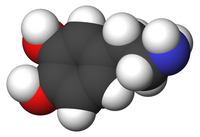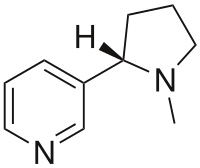
Abnormal involuntary movement scale in tardive dyskinesia: Minimal clinically important difference
Sign Up to like & getrecommendations! Published in 2019 at "Movement Disorders"
DOI: 10.1002/mds.27769
Abstract: A minimal clinically important difference has not been established for the Abnormal Involuntary Movement Scale in patients with tardive dyskinesia. Valbenazine is a vesicular monoamine transporter 2 inhibitor approved for the treatment of tardive dyskinesia… read more here.
Keywords: movement; abnormal involuntary; movement scale; involuntary movement ... See more keywords

Effect of tardive dyskinesia on quality of life in patients with bipolar disorder, major depressive disorder, and schizophrenia
Sign Up to like & getrecommendations! Published in 2019 at "Quality of Life Research"
DOI: 10.1007/s11136-019-02269-8
Abstract: Tardive dyskinesia (TD) is a common but serious hyperkinetic movement disorder and side effect of antipsychotic medications used to treat bipolar disorder (BD), major depressive disorder (MDD), and schizophrenia (SZ). The purpose of this study… read more here.
Keywords: disorder; hrqol; bipolar disorder; quality life ... See more keywords

Tardive Dyskinesia: Treatment Update
Sign Up to like & getrecommendations! Published in 2019 at "Current Neurology and Neuroscience Reports"
DOI: 10.1007/s11910-019-0976-1
Abstract: Tardive dyskinesia (TD) is caused by exposure to medications with dopamine antagonism, mainly antipsychotics. It often distresses individuals, physically and emotionally and affects their quality of life. We evaluated peer-reviewed recently published articles with a… read more here.
Keywords: dyskinesia treatment; treatment; tardive dyskinesia; treatment update ... See more keywords

Smoking and tardive dyskinesia in patients with schizophrenia
Sign Up to like & getrecommendations! Published in 2017 at "European Psychiatry"
DOI: 10.1016/j.eurpsy.2017.02.442
Abstract: Introduction Tardive dyskinesia (TD) is a drug-induced movement disorder that arises with antipsychotics. These drugs are the mainstay of treatment for schizophrenia. Epidemiological studies have shown mixed results on smoking's association with TD. Objective To… read more here.
Keywords: patients schizophrenia; nicotine dependence; study; smoking tardive ... See more keywords

Lithium monotherapy-induced tardive dyskinesia.
Sign Up to like & getrecommendations! Published in 2019 at "Journal of affective disorders"
DOI: 10.1016/j.jad.2018.10.094
Abstract: Tardive dyskinesia is a movement disorder that develops during the course of long-term treatment with neuroleptic agents and is characterized primarily by choreiform and athetotic movements. We report the case of a 68-year old female… read more here.
Keywords: lithium monotherapy; monotherapy induced; dyskinesia; tardive dyskinesia ... See more keywords

Tardive dyskinesia: Epidemiology
Sign Up to like & getrecommendations! Published in 2018 at "Journal of the Neurological Sciences"
DOI: 10.1016/j.jns.2018.02.007
Abstract: The term tardive syndrome (TS) encompasses a few different phenomenologic conditions, some of which occur in isolation and others in association with each other. This, along with the unusual confound for a drug side effect,… read more here.
Keywords: antipsychotic drugs; drug; generation; epidemiology ... See more keywords

Reprint of: Clinical management of tardive dyskinesia: Five steps to success
Sign Up to like & getrecommendations! Published in 2018 at "Journal of the Neurological Sciences"
DOI: 10.1016/j.jns.2018.02.037
Abstract: Tardive dyskinesia (TD) has long been thought to be a generally irreversible consequence of the use of dopamine receptor blocking agents. There is now an opportunity to successfully manage this condition with agents approved by… read more here.
Keywords: management tardive; clinical management; reprint clinical; dyskinesia five ... See more keywords

Association study of Disrupted-In-Schizophrenia-1 gene variants and tardive dyskinesia
Sign Up to like & getrecommendations! Published in 2018 at "Neuroscience Letters"
DOI: 10.1016/j.neulet.2018.08.007
Abstract: Tardive dyskinesia (TD) is an involuntary movement disorder that occurs in ∼20% of patients after extended antipsychotic use. Its pathophysiology is unclear; however, familial patterns and gene association studies indicate an inherited component to risk.… read more here.
Keywords: gene variants; tardive dyskinesia; association; gene ... See more keywords

Mechanism of action of vesicular monoamine transporter 2 (VMAT2) inhibitors in tardive dyskinesia: reducing dopamine leads to less “go” and more “stop” from the motor striatum for robust therapeutic effects
Sign Up to like & getrecommendations! Published in 2017 at "CNS Spectrums"
DOI: 10.1017/s1092852917000621
Abstract: Tardive dyskinesia can now be successfully treated by inhibiting the vesicular monoamine transporter type 2 (VMAT2). read more here.
Keywords: monoamine transporter; vesicular monoamine; tardive dyskinesia;

134 Improvements in Clinical Global Impression of Change With Deutetrabenazine Treatment in Tardive Dyskinesia From the ARM-TD and AIM-TD Studies
Sign Up to like & getrecommendations! Published in 2018 at "CNS Spectrums"
DOI: 10.1017/s1092852918000305
Abstract: Abstract Introduction Tardive dyskinesia (TD) is an involuntary movement disorder that is often irreversible, can affect any body region, and can be debilitating. In the ARM-TDand AIM-TD studies, deutetrabenazine treatment demonstrated statistically and clinically significant… read more here.
Keywords: aim; treatment; deutetrabenazine treatment; deutetrabenazine ... See more keywords

144 A Clinical Practice Assessment In Tardive Dyskinesia: Are Physicians Up-to-Date?
Sign Up to like & getrecommendations! Published in 2018 at "CNS Spectrums"
DOI: 10.1017/s1092852918000391
Abstract: Abstract Study Objectives To assess physicians’ current knowledge, skills, competence, and practice barriers regarding tardive dyskinesia (TD) and assess continuing medical education (CME) needs. Assessment Methods A 29-question clinical practice assessment survey instrument consisting of… read more here.
Keywords: clinical practice; neurologists aware; psychiatrists neurologists; epidemiology ... See more keywords